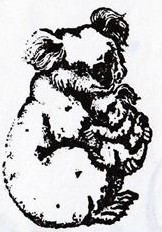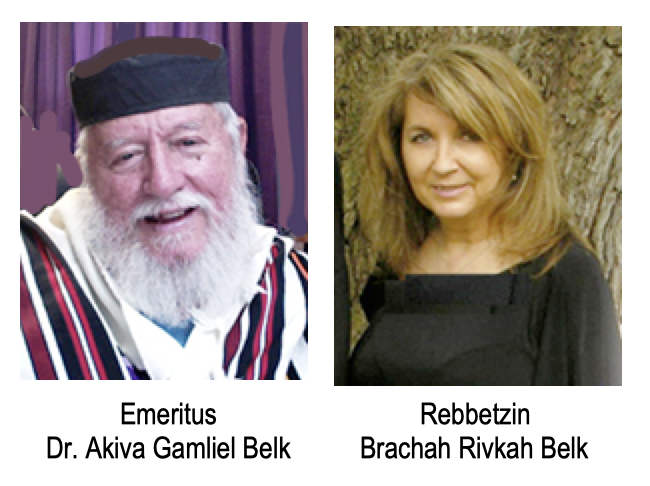Equanimity – HaShem’s Example 13
Equanimity – HaShem’s Example
Is there an example of equanimity that we can study and judge where we are on this journey?
As always we should look to the Torah for guidance.
Bereishit (Gen) 1.27 So G-d Created man in His own Image, in the Image of G-d Created He him; male and female He Created them:
וַיִּבְרָא אֱלֹהִים אֶת הָאָדָם בְּצַלְמוֹ בְּצֶלֶם אֱלֹהִים בָּרָא אֹתוֹ זָכָר וּנְקֵבָה בָּרָא אֹתָם
And Created – Elokim – everything from Aleph to Tav – the man – in His Image(Btzalmo) – in form of (Btzelem) – Elokim – He Created – him – male – and female – He Created – them
We can ask ourselves what it means to be created in G-d’s Image, in His Form? This not only describes our created powers but it also should show us how we are to treat others. The inner drive to imitate the Source of all life, the Source of all love should fill us with the determination to accomplish this, in His Image, in His Form.
HaShem is the Creator and Sustainer of the universe, Who revealed His Law to Israel at Mt. Sinai. Man / Woman is accountable for his / her deeds. We are expected to become aware of our spiritual purpose and endeavor to transform ourselves and the world around us. We are to transform from a highly developed animal soul into a transcendental soul. There are five levels of our soul. Nefesh, Ruach, Neshamah, Chayah, Yechidah. The Torah is our basic guide that shows us ways to emulate HaShem G-d.
Why does it say (Devarim (Deut) 13: 5): One should walk after God? Is it possible to walk after the Shekhinah? Is He not like a consuming fire (Devarim (Deut) 4:24)? Rather, it means that one should imitate His ways. As God clothed Adam and Eve (Bereishit (Gen) 3:21), so should we clothe the naked; as He visited the ailing (Rashi, Bereishit (Gen) 18: 1), so should we visit the sick; as He comforted Isaac after Abraham’s death (Rashi, Bereishit(Gen) 25: 11), so should we comfort mourners; as He buried Moses (Devarim (Deut) 34:6), so should we care for the dignity of the dead (Talmud, Sotah 14a).
And the L-rd Passed by before him, and proclaimed, The L-rd, The L-rd G-d, Merciful and Gracious, Long Suffering, and Abundant in Goodness and Truth. Keeping mercy for thousands, Forgiving iniquity and transgression and sin, and that will by no means clear the guilty; visiting the iniquity of the fathers upon the children, and upon the children’s children, to the third and to the fourth generation. Shemot (Exodus) 34.6-7
Who is a G-d like you, who Pardons iniquity, and Passes over the transgression of the remnant of His heritage? He does not retain His anger forever, because He Delights in mercy. He will again have Compassion upon us; He will Suppress our iniquities; and you will Cast all their sins into the depths of the sea. You will Show TRUTH to Jacob, and loving mercy to Abraham, as you have sworn to our fathers from the days of old. Michah (Micah) 7.18-20
HaShem’s 13 Attributes of Mercy
וַיַּעֲבֹר יְהֹוָה עַל פָּנָיו וַיִּקְרָא יְהֹוָה יְהֹוָה אֵל רַחוּם וְחַנּוּן אֶרֶךְ אַפַּיִם וְרַב חֶסֶד וֶאֱמֶת:
נֹצֵר חֶסֶד לָאֲלָפִים נֹשֵׂא עָוֹן וָפֶשַׁע וְחַטָּאָה וְנַקֵּה לֹא יְנַקֶּה פֹּקֵד עֲוֹן אָבוֹת עַל בָּנִים וְעַל בְּנֵי בָנִים עַל שִׁלֵּשִׁים וְעַל רִבֵּעִים
- Adonai — compassion before a person sins;
- Adonai — compassion after a person has sinned;
- El — mighty in compassion to give all creatures according to their need;
- Rachum — merciful, that humankind may not be distressed;
- Chanun — gracious if humankind is already in distress;
- Erech appayim — slow to anger;
- Rav chesed — plenteous in mercy;
- Emet — truth;
- Notzer chesed laalafim — keeping mercy unto thousands;
- Noseh avon — forgiving iniquity;
- Noseh peshah — forgiving transgression;
- Noseh chatah — forgiving sin;
- Venakeh — and pardoning.
- Who is a G-d like You
- Who Pardons iniquity
- And Forgives transgression
- And Forgives the transgression of the remnant of His heritage
- He does not Retain His anger forever
- He Delights in mercy.
- He will again Show us compassion
- He will Vanquish our iniquities
- You will Cast all their sins into the depths of the sea.
- Show Faithfulness to Jacob
- Chesed/Kindness/Mercy to Abraham
- Which You have Sworn to our Fathers
- From days of old
We are supposed to emulate our Creator. The reason we study is to learn more about how HaShem Desires us to be. He Created us with a clean slate and Provides us opportunity after opportunity when we fail. We have not felt the full impact of our failures because HaShem is Patient with us. We in turn must be patient with ourselves and with others. This is not an easy task. That is why Equanimity is so important to grasp and to implement in our lives. Without Equanimity Patience is unreachable.
We must remember that All the the Almighty Does, He Does for good.
We must also remember that…………………
Unless the Lord builds the house, those who build it labor in vain… Tehilim (Psalm) 127
All that one accomplishes on this earth is done with the Blessing of Heaven and with the assistance of Heaven.
To build is difficult, to rebuild is even more challenging.
So how does one change so that our emotions and reactions are a choice not a reaction?
We as it were are partners with our Creator and work to become … in His Image Tzelem, in His Likeness Demut
If a person’s physical form reflects the Supernal Form, yet his actions do not, he falsifies his stature. The Palm Tree of Devorah Chapter 1
What does that mean exactly? My Mother used to say Pretty is as pretty does. Form and Likeness are the Deeds of the Creator. We know Him by His Actions. We are known by our actions as well.
Devekut, cleaving, is an act of seclusion and prayer a sanctuary.
Devekut is profound concentration; spiritual attachment to, or unification with, the Divine; a communion with the Divine that removes one from physical awareness.
It is impossible to achieve devekut (attachment to G‑d) except by means of Torah and Mitzvot
The Letters of the Torah enable us to absorb and endure G-dliness
…To make the people of Israel meritorious…
Lezakot, translated as to make meritorious, also means to refine. The goal of the Torah and its mitzvot is to refine the Jewish people. This intention is manifest in Pirkei Avot, which teaches us to lift our ethical conduct above the limits of human wisdom and cultivate it according to G-d’s Desire. Lubavitcher Rebbe – In the Paths of Our Fathers by Eliyahu Tauger (Kehot Publisher)
Pirkei Avot focuses on ethical development and personal refinement.
When one becomes aware of the essential G-dly core of every individual, one appreciates:
- a) the necessity to refine oneself so that this essential quality can be expressed, and
- b) that every individual, regardless of his / her present level of development, has the potential to achieve such refinement. Lubavitcher Rebbe
Tomer Devorah teaches us about Keter ( our head ) and the head of the Sefirot
- We must be humble (anavah)
- Our thoughts (chokmah) should emulate the thought process of keter.
- Our forehead (metzach) should display no harshness. The forehead shows expression.
- Our ears (Ozen) should always turn to hear good while falsehood or despicable things should be denied entry.
- Our eyes (Ayin) should not gaze at anything despicable.
- Our nose (Chotem) we should always remember that HaShem is constantly Breathing into us a living soul. Nary a breath of anger should ever be found in our nose.
- Our face (Panim) should always shine, and we should receive all with a cheerful countenance ( All that the Holy One Does, He Does for good).
- Our mouth (Peh) should express nothing but good and the content of our words should be Torah and constant good will. Tomer Devorah Rabbi Moshe Cordovero ch.2
Even if we feel our lives have been uprooted with hurricane like destruction and sleepless nights, we must always be ready to start over, to start anew. Vayikra (Lev) 25.35 says if your brother has become poor, and his means fail with you; then you shall relieve him; though he may be a stranger, or a sojourner; that he may live with you:
Rashi adds: Do not forsake him so that he falls down altogether, when it would be difficult to raise him, but uphold him from the very moment when he starts falling.
To restore a person after his / her collapse is very difficult. To restore ourselves after a collapse is just as difficult but this is precisely what we have been called to throughout history.
This is what the Torah requires of man: to act, to create and, where necessary, to recreate, even as did the Divine Creator.

Blessings and Peace
Rebbetzin Revi Belk
